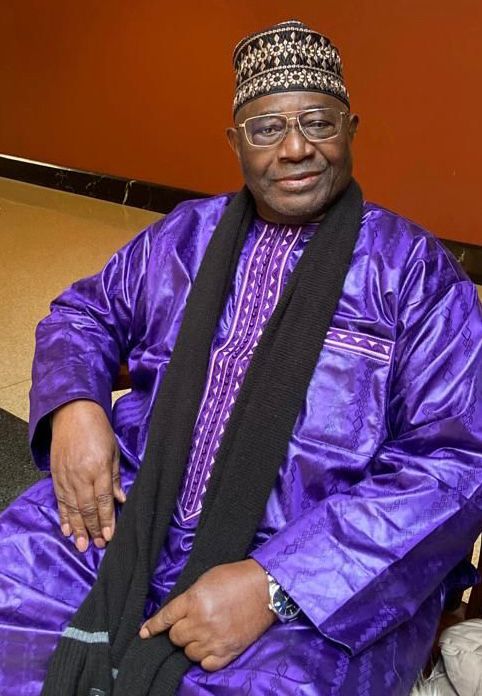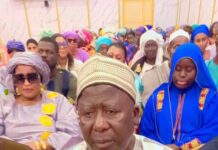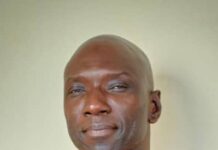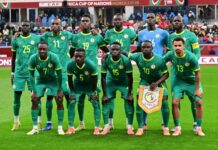By: BABA ABUBAKAR DRAMEH, EX AMBASSADOR\IMAM RATIB OF SINTET
Diplomacy is essentially designed to establish a mutual understanding among the Nation States in the interest of their peoples. It must be based on mutual respect among the sovereign states of the world irrespective of size, economic or military power. It should be further aimed at establishing or promoting world security and peace. Through diplomacy, nations could establish and consolidate cooperation among in all areas of development. It is important for diplomats, be they ambassadors or their supporting staff that they always bear in mind that they represent their countries and peoples with dignity and decorum so that the countries in which they serve see them as a reflection of the good traditions and values of their own peoples. In view of the fact that it is indeed costly to open and run diplomatic missions, it would be wise for smaller and poorer countries to limit the number of their missions.
For effective relations between sending and receiving states, efforts should be made to maximize the benefits of bilateral and multilateral cooperation between sending and receiving states. Diplomacy is the art of managing relations among nation-states to build peace and security as well as foster mutual understanding among the world’s various nations.
It is important to note that the size of the country that a diplomat represents either big or small, should not be an obstacle to the country’s efforts to move forward and to rank among big and developed states. There are smaller states in the world, which, through visionary leadership, have been able to compete in the area of development with bigger states and to emerge as a force to be reckoned with.
The success of political leadership in enabling its nation to progress and prosper depends on the vision of that leadership and also on the people of that country. These are two major factors that enable a country to be ranked among advanced nations. A visionary political leadership must be able to motivate its own people to uphold the principles that would help the country to achieve success.
As I said, the example of small countries that rank today among developed and industrialized nations are Singapore, Malaysia and Taiwan. These countries are regarded as economic and industrial giants thanks to honest and corruption-free leadership. Therefore, it is the duty of a diplomat to demonstrate and transfer such positive and brilliant examples to his or her own nation so that the leadership of his or her own country will t. As we are aware, Singapore was once a member of the Federation of Malay, which was composed of the States of Malay, Sarawak, Sabah and Singapore. Under the leadership of Lee Kwan Yew in 1965, Singapore broke away from the Federation of Malaysia and was able to make Singapore one of the most developed countries in Asia, thanks to honest, visionary political leadership and dedicated and disciplined people. The first Prime Minister of Singapore focused on education and the fight against corruption for more than a decade. No one was able to challenge his reign for more than two decades simply because his people realized the type of leadership he provided was the best they could aspire for.
Therefore, it is the duty of a diplomat to provide such important and classified information to his authorities, who could possibly emulate such examples and apply them to make a difference in their own way.
In view of what I have so far stated, we can conclude that, in order for a country to develop and prosper, three things are needed:
1. Honest and visionary political leadership.
2. People motivated by political leadership.
3. Determination to achieve the goals of development.
Diplomacy is an important factor in ensuring a global peaceful environment and peaceful co-existence. We must admit that every member of the United Nations, big or small is required to promote peace and respect for the sovereignty of all states.
For example, Senegal is bigger than The Gambia, but when it comes to respect for sovereignty according to the UN Charter, both are equal with equal in terms of voting and decision-making at the Security Council and the general assembly. Yet, it is the duty of Gambian and Senegalese diplomats to ensure the permanent existence of peace and cordial relations between the two countries. The common interest between The Gambia and Senegal from human, material, trade exchanges etc. cannot be over-emphasized. It is therefore important for both countries to treat each other with respect for each one’s independence and sovereignty.
The primary objective of a diplomat is to promote and protect the interests of his or her own country in all domains including the image and reputation of the country that he or she represents. Diplomats should do everything in their power to avoid involvement in matters contrary to the rules and laws of the receiving state. Since a diplomat must protect and defend the laws and rules of their own country, they should likewise apply the same spirit to the situation of the receiving state.
We observe that with regard to the relations between The Gambia and Senegal, there were instances during which tension arose between the two countries over cross-border trade issues since the early days of The Gambia’s independence.
However, the two Governments have always been able to defuse such tension before it got out of hand. Both Governments, through diplomatic channels, have never been in a military conflict when it comes to dealing with such situations. In the run-up to the 1981 abortive coup, there were some areas of misunderstanding arising from the smuggling of contraband goods between The Gambia and Senegal, but always through diplomacy, the Governments of The Gambia and Senegal have been able to aptly handle such intra-trade disputes between them.
In 1981, at the request of the late President Sir Dawda Kairaba Jawara, former President Abdou Joof of Senegal, sent troops to quell the military rebellion led by Kukoi Samba Sanyang in The Gambia. In the aftermath of the abortive coup, the two leaderships came to an agreement to form a confederation comprising The Gambia and Senegal, with President Abdou Joof of Senegal as the President of this newly created political entity.
Under the agreement, all the Gambian confederal ministers became subordinates to their Senegalese counterparts. Even President Jawara himself became an invisible head of state under President Abdou Joof. Dakar became the confederal capital and the headquarter of the National Assemblies of Senegal and The Gambia. There was apparently an unequal power sharing between President Abdou Joof and President Jawara even though, there existed an understanding that the presidency of the confederation should rotate between the two heads of state on equal terms. Since such a presidential rotation did not come about, there was invisible tension in the confederal arrangement. Apparently, since President Abdou Joof might not have favoured the rotational system of the presidency, he suddenly decided to withdraw from the confederation, followed by the withdrawal of all the Senegalese elements of the confederal army. Here, diplomacy did not succeed in maintaining the status quo. As a result, the entire confederal system collapsed.
Before Kukoi Sanyang’s abortive coup, there existed between The Gambia and Senegal an entity referred to as the Senegalo-Gambian Secretariat, coordinating the bilateral relations in all areas, political, economic, cultural etc. between the two countries. This arrangement, however, was overshadowed or even scrapped following the establishment of the Senegambia Confederation. However, the erstwhile Senegalo-Gambia Secretariat has today come back into existence. It would appear therefore such a political tool could be a tenable compromise between the two countries.
We are aware that political, economic, financial and technical cooperation continues hitherto to flourish between the two countries. Although, in my view, some aspects of this cooperation did not go far enough at this point in time to satisfy a section of the Gambian population and they include the energy cooperation agreement, considering the massive and frequent power cuts in certain parts of The Gambia, especially in the West Coast Region. We as citizens look forward to dynamic diplomacy that could put an end to such hardship in the not-too-distant future. Of course, there must be other areas of bilateral cooperation between The Gambia and Senegal which need to be revisited through diplomatic channels.
Thank you in advance, fellow Diplomats for your understanding.






